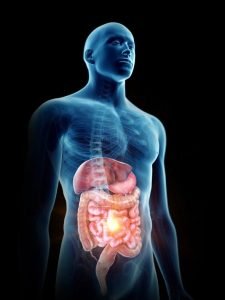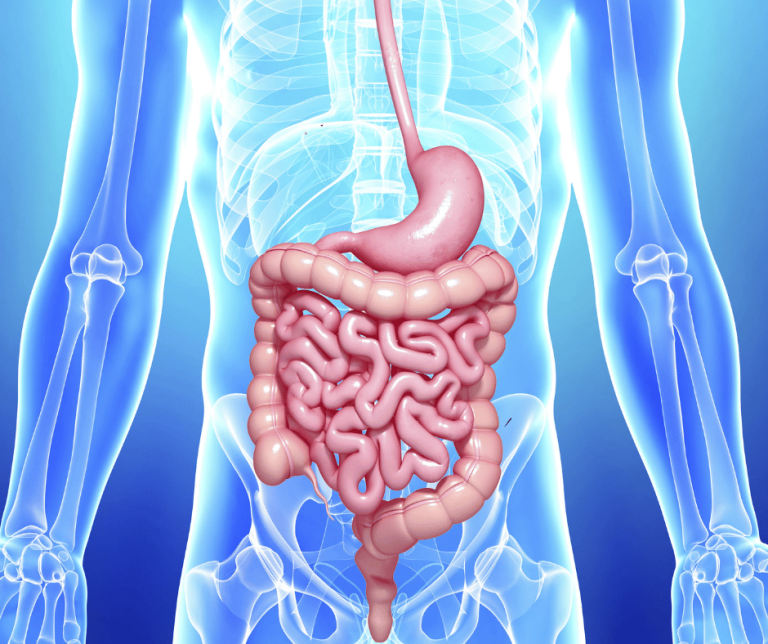
How Your Diet Shapes Your Bowel Movements (and Gut Health)
What you eat directly impacts your digestion, bowel movements, and overall gut health. Struggling with constipation, bloating, or irregularity? The key lies in your diet.

Home » The Impact of Hydration on Digestive Health: Why Drinking Water is Crucial
Water is the elixir of life, an essential component that our bodies depend on to function optimally. While many of us are aware of the need to drink water for general health, we often overlook how crucial hydration is for our digestive system. Digestive health plays a pivotal role in our overall well-being, influencing everything from our energy levels to our immune function. Without adequate hydration, our digestive system can become sluggish, leading to uncomfortable and sometimes serious health issues.
Imagine trying to wash a greasy pan without enough water—it’s nearly impossible to get it clean. Similarly, your digestive system needs sufficient water to process and transport the nutrients from the food you eat, ensuring they are absorbed efficiently and waste is eliminated smoothly. This blog post will explore the intricate relationship between hydration and digestion, providing you with actionable tips to stay hydrated and enjoy better digestive health.
In the following sections, we’ll delve into how water aids in digestion, the impact it has on stool consistency, and the broader benefits of maintaining proper hydration. We’ll also provide practical guidelines on how much water you should be drinking daily, along with tips to make hydration a seamless part of your routine. Finally, we’ll highlight water-rich foods and other hydrating beverages that can complement your water intake, ensuring you stay hydrated in a variety of enjoyable ways.
By the end of this post, you’ll have a deeper understanding of why drinking water is not just about quenching your thirst but is a fundamental practice for keeping your digestive system—and by extension, your entire body—healthy and happy. So grab a glass of water, get comfortable, and let’s dive into the fascinating world of hydration and digestive health.

Understanding the role of water in digestion helps highlight why staying hydrated is so vital for your digestive health. Our digestive system is a complex network that requires sufficient water to function smoothly. Let’s break down the primary ways hydration impacts digestion:
Role of Water in Digestive Processes
Water is essential for the initial stages of digestion, starting with saliva production in the mouth. Saliva, which is primarily water, contains enzymes that begin breaking down food even before it reaches your stomach. This initial breakdown is crucial for making the nutrients in food more accessible for absorption later on.
Once food reaches the stomach, water continues to play a pivotal role. The stomach uses gastric juices, which are rich in water, to further break down food into a semi-liquid form called chyme. This process not only aids in the mechanical breakdown of food but also in the chemical digestion of proteins and fats.
As chyme moves from the stomach to the small intestine, water helps dissolve soluble fiber, allowing it to pass smoothly through the digestive tract. This is where most nutrient absorption occurs, and adequate water is necessary to dissolve and transport these nutrients through the intestinal walls into the bloodstream.
Stool Consistency and Water
Water is a key factor in determining the consistency of your stool. The colon, or large intestine, is responsible for absorbing water from the remaining indigestible food matter, forming solid waste that can be easily excreted. If you’re not drinking enough water, your body will draw more water from the colon, leading to hard, dry stools that are difficult to pass. This condition, known as constipation, can cause significant discomfort and may lead to other complications like hemorrhoids.
On the other hand, staying well-hydrated ensures that there is enough water in your digestive system to keep stools soft and easy to pass. This not only helps prevent constipation but also supports regular bowel movements, which are crucial for eliminating waste and toxins from your body.
Consequences of Dehydration
When you’re dehydrated, your body prioritizes vital organs like the heart and brain over the digestive system, leading to a reduction in digestive efficiency. This can cause a range of issues, from mild discomfort to severe digestive disorders. Chronic dehydration can lead to persistent constipation, which increases the risk of developing diverticulitis (inflammation of pouches in the colon) and other gastrointestinal conditions.
Furthermore, inadequate hydration can exacerbate conditions like acid reflux, where stomach acid frequently backs up into the esophagus, causing heartburn and indigestion. Proper hydration helps maintain the balance of stomach acids, preventing such occurrences.
In summary, hydration is not just about quenching your thirst; it’s a fundamental aspect of maintaining a healthy digestive system. Ensuring you drink enough water helps your body efficiently break down food, absorb nutrients, and eliminate waste, all of which are crucial for overall health and well-being. Next, we’ll discuss how much water you should be drinking daily and provide some practical tips to help you stay hydrated.
Knowing how much water you should drink daily is essential for maintaining optimal hydration and supporting your digestive health. While the classic “eight glasses a day” guideline is a good starting point, individual water needs can vary based on several factors. Let’s explore these guidelines in more detail and offer practical tips to help you stay hydrated.
Daily Water Intake Recommendations
The National Academies of Sciences, Engineering, and Medicine recommends a daily water intake of about 3.7 liters (125 ounces) for men and 2.7 liters (91 ounces) for women, including all beverages and food. However, this can vary depending on age, activity level, and climate. For instance, athletes or people living in hot climates may need more water to compensate for increased fluid loss through sweat.
A useful general guideline is to drink at least half your body weight in ounces of water each day. For example, if you weigh 150 pounds, aim for at least 75 ounces of water daily. Adjust this amount based on your specific needs and lifestyle.
Signs of Proper Hydration
Monitoring your hydration status can help you ensure you’re drinking enough water. Here are some physical indicators of proper hydration:
Tips for Staying Hydrated
Staying hydrated doesn’t have to be a chore. Incorporate these practical tips into your daily routine to ensure you’re getting enough water:
Adjust for Activity and Climate
By following these guidelines and tips, you can ensure that you are drinking enough water to support your digestive health and overall well-being. In the next section, we’ll look at the benefits of incorporating water-rich foods and other hydrating beverages into your diet.

In addition to drinking water, you can enhance your hydration levels by consuming water-rich foods and other hydrating beverages. These options not only help you meet your daily water intake goals but also provide essential nutrients that support overall health. Let’s explore the benefits and examples of these hydrating foods and drinks.
Water-Rich Foods
Incorporating water-rich foods into your diet is a delicious and effective way to stay hydrated. These foods typically have high water content and are packed with vitamins, minerals, and fiber. Here are some top choices:
Hydrating Beverages
While water should be your primary source of hydration, other beverages can also contribute to your daily fluid intake. Here are some hydrating options to consider:
Minimizing Dehydrating Drinks
While certain beverages can help keep you hydrated, others can have the opposite effect. It’s important to be mindful of your intake of the following:
Balanced Hydration Approach
Achieving balanced hydration is about incorporating a variety of fluids and water-rich foods into your daily routine. Here are a few practical tips:
By making water-rich foods and hydrating beverages a regular part of your diet, you can support your body’s hydration needs and enjoy the numerous benefits that come with it. Proper hydration contributes to better digestion, improved energy levels, and overall enhanced well-being. In our final section, we’ll wrap up with a summary and encourage you to take actionable steps toward better hydration.

Staying hydrated is essential for maintaining a healthy digestive system and overall well-being. By understanding the vital role water plays in digestion, we can appreciate the importance of adequate hydration and make conscious efforts to drink enough water daily.
Proper hydration helps your body efficiently break down food, absorb nutrients, and eliminate waste, preventing common digestive issues like constipation and acid reflux. Drinking enough water ensures that digestive enzymes and gastric juices function optimally, aiding in the smooth movement of food through your digestive tract.
Incorporating water-rich foods and hydrating beverages into your diet not only boosts your hydration levels but also provides essential vitamins, minerals, and antioxidants that support overall health. Foods like cucumbers, watermelon, strawberries, and leafy greens are excellent choices, while beverages like herbal teas, coconut water, and infused water add variety and enjoyment to your hydration routine.
To stay adequately hydrated, aim to drink at least half your body weight in ounces of water each day, adjusting for factors like activity level and climate. Pay attention to signs of proper hydration, such as light-colored urine and skin elasticity, and use practical tips like setting reminders, carrying a water bottle, and drinking a glass of water before meals to help you stay on track.
Achieving balanced hydration is a simple yet powerful way to support your digestive health and enhance your overall quality of life. By making hydration a priority, you can enjoy the benefits of improved digestion, better energy levels, and a stronger immune system.
Now that you understand the importance of hydration for digestive health, it’s time to take action. Start by evaluating your current hydration habits and set a goal to increase your water intake if needed. Try incorporating some of the tips and water-rich foods we’ve discussed into your daily routine.
We’d love to hear from you! Share your own hydration tips or experiences in the comments below. How do you stay hydrated? What are your favorite water-rich foods or hydrating beverages? Your insights could help others on their journey to better hydration and digestive health.
Remember, staying hydrated is a continuous effort that yields significant benefits for your digestive system and overall well-being. So grab a glass of water, stay mindful of your hydration, and enjoy the positive impact it has on your health!

What you eat directly impacts your digestion, bowel movements, and overall gut health. Struggling with constipation, bloating, or irregularity? The key lies in your diet.

You’ve been pooping wrong your entire life—and it’s wrecking your gut. Dr. Gina Sam’s poop method reveals the shockingly simple, doctor-backed fix that makes straining

Struggling with bloating after protein shakes? Your choice of protein could be affecting your gut health. Pea protein is gentle and gut-friendly, while whey protein

Table of Contents <svg aria-hidden=”true” viewBox=”0 0 448 512″ xmlns=”http://www.w3.org/2000/svg”><path d=”M207.029 381.476L12.686 187.132c-9.373-9.373-9.373-24.569 0-33.941l22.667-22.667c9.357-9.357 24.522-9.375 33.901-.04L224 284.505l154.745-154.021c9.379-9.335 24.544-9.317 33.901.04l22.667 22.667c9.373 9.373 9.373 24.569 0 33.941L240.971

Happy Poops.
What about your friends?